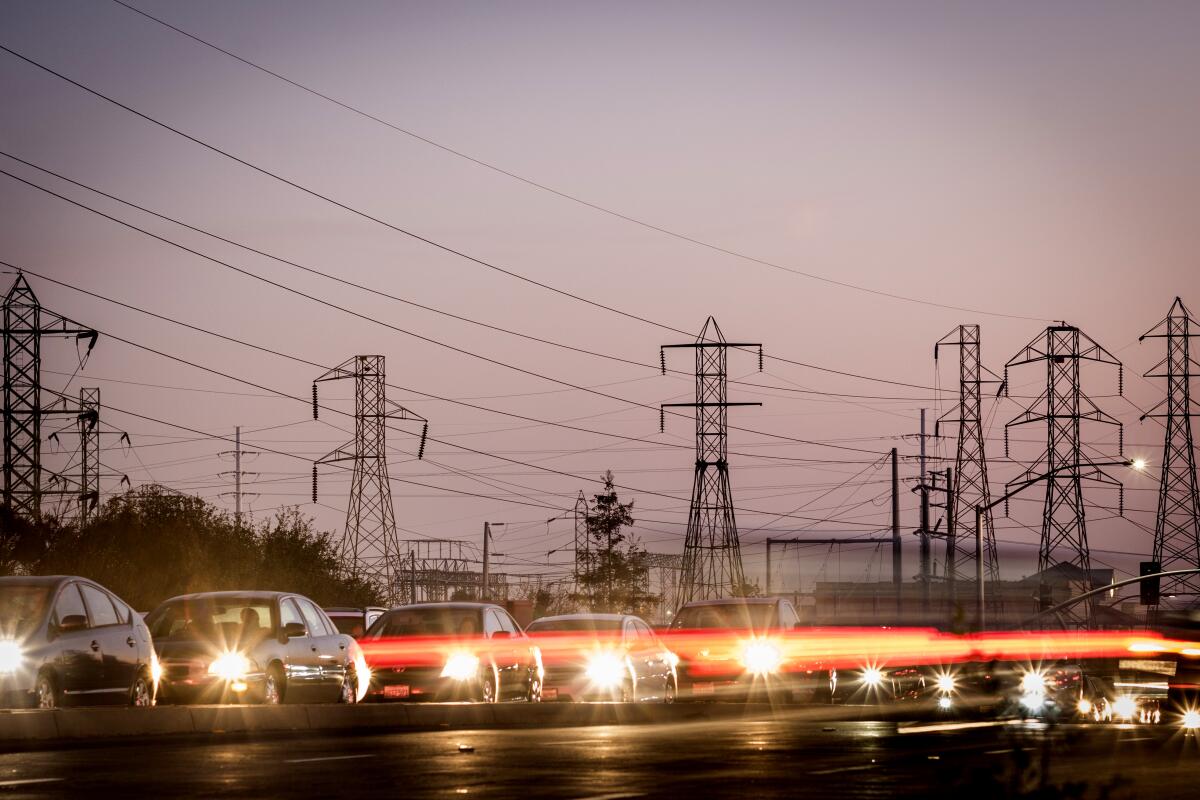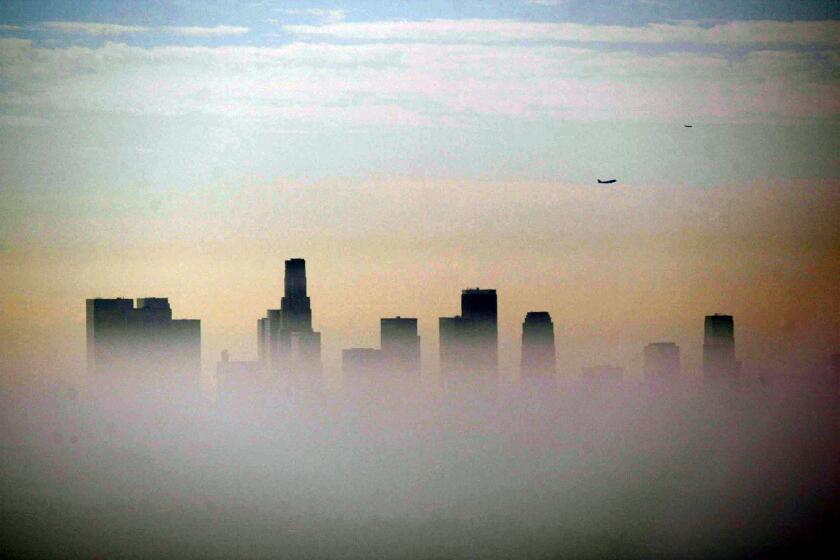17 states push EPA to revoke Californiaâs ability to set its own vehicle emission standards

The attorneys general of 17 states have asked a federal appeals court to reconsider an Environmental Protection Agency decision allowing California to set its own vehicle emission standards.
The policy was struck under President Trump and reinstated by the Biden administration earlier this year.
Californiaâs vehicle emission standards are some of the toughest in the nation, and the 17 Republican attorneys general argue the EPAâs decision to let the Golden State set its own rules forces the rest of the country to follow suit. The state first developed the standards in 2004 but was barred from implementing them until 2009, when the EPA granted California permission to impose tough restrictions on greenhouse gas emissions from cars and trucks.
The states of Missouri, Ohio, Alabama, Arkansas, Georgia, Indiana, Kansas, Kentucky, Louisiana, Mississippi, Montana, Nebraska, Oklahoma, South Carolina, Texas, Utah and West Virginia joined in a petition to the U.S. Court of Appeals in Washington, D.C. They claim the EPAâs decision would require all states to adopt Californiaâs strict vehicle emission standards for all new cars under the authority of the Clean Air Act.
With time running out to meet a decades-old air quality standard, local regulators are threatening to sue the federal government.
âThe act simply leaves California with a slice of its sovereign authority that Congress withdraws from every other state,â West Virginia Atty. Gen. Patrick Morrisey of Virginia said in a statement.
Missouri Atty. Gen. Eric Schmitt said in a statement that if California is allowed to set nationwide standards, then manufacturing would become âastronomically expensive, and those additional costs are passed onto consumers.â He added that the Golden Stateâs standards are âoppressive.â
The EPA did not immediately respond to requests by The Times for comment on the petition, which was filed Thursday. The filing cites a March 2022 decision from EPA Administrator Michael Regan that granted California the ability to regulate greenhouse gas emissions from motor vehicles under the stateâs Advanced Clean Cars program.
California first negotiated its own set of tougher emission standards with Congress during the passage of the Clean Air Act in 1970. The state has a carve-out agreement in the Clean Air Act but each year requires a waiver from the EPA. The 2009 update reinstated a 40-year interpretation of the act that was rescinded by the Bush administration and reinstated under the Obama administration.
In 2019, the EPA threatened to cut federal transportation funds to California for not submitting timely pollution-control plans. The open feud between the state and the Trump administration seemed to come to a head after California secretly negotiated a deal with four major automakers to voluntarily follow the stateâs emission rules and increase fuel efficiency.
At the time, the EPA rescinded a decades-old rule that allowed California to set tougher-than-required car emissions standards than those required by federal regulators. After the waiver was rescinded, California sued the federal government, arguing the tougher standards were necessary to improve air quality in the state.
Three years later, under the Biden administration in 2022, the EPA reversed its hostile stance toward Californiaâs vehicle emission standards and reinstated the waiver under the Clean Air Act. Multiple attorneys general called Californiaâs special treatment unconstitutional, including many of the states that joined the recent petition.
In March, Rep. Cathy McMorris Rodgers of Washington, Republican leader of the House Energy and Commerce Committee, said, âPresident Bidenâs strict auto emissions regulations are yet another example of this administration putting a radical rush-to-green regulatory regime ahead of restoring Americaâs energy dominance and leadership.â
Times staff writer Russ Mitchell contributed to this story.
More to Read
Sign up for Essential California
The most important California stories and recommendations in your inbox every morning.
You may occasionally receive promotional content from the Los Angeles Times.










![[20060326 (LA/A20) -- STATING THE CASE: Marchers organized by unions, religious organizations and immigrants rights groups carry signs and chant in downtown L.A. "People are really upset that all the work they do, everything that they give to this nation, is ignored," said Angelica Salas of the Coalition of Humane Immigrant Rights. -- PHOTOGRAPHER: Photographs by Gina Ferazzi The Los Angeles Times] *** [Ferazzi, Gina -- - 109170.ME.0325.rights.12.GMF- Gina Ferazzi/Los Angeles Times - Thousands of protesters march to city hall in downtown Los Angeles Saturday, March 25, 2006. They are protesting against House-passed HR 4437, an anti-immigration bill that opponents say will criminalize millions of immigrant families and anyone who comes into contact with them.]](https://ca-times.brightspotcdn.com/dims4/default/34f403d/2147483647/strip/true/crop/1983x1322+109+0/resize/840x560!/quality/75/?url=https%3A%2F%2Fcalifornia-times-brightspot.s3.amazonaws.com%2Fzbk%2Fdamlat_images%2FLA%2FLA_PHOTO_ARCHIVE%2FSDOCS%2854%29%2Fkx3lslnc.JPG)

